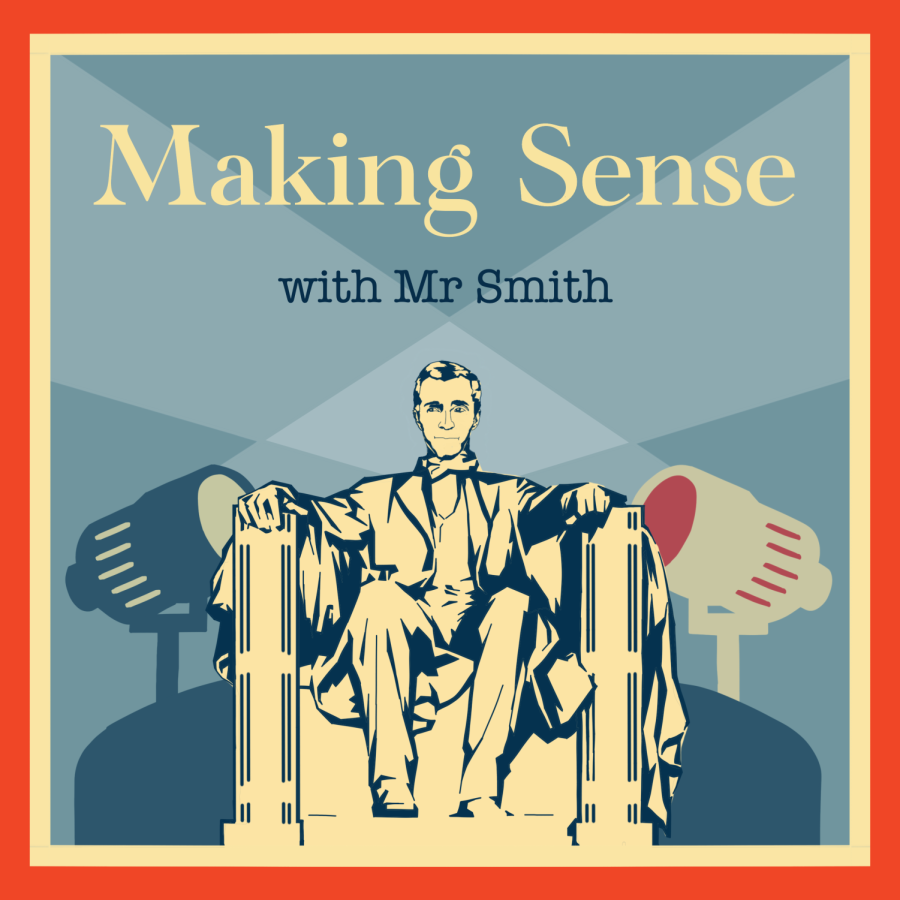The outcome of the election that took place on November 5, 2024, was extremely unprecedented. From the local elections to the national election, many did not predict the results that transpired across the country. Although the majority of students at BT are not old enough to vote, the election could still impact them in big ways. Brownell Talbot has a large immigrant population in particular, which could be at risk for Trump’s malevolent anti-immigration policies. The abolition of the Department of Education might have the largest effect on our students; this would leave education up to the states and would have devastating impacts on our already undereducated population. Under the Trump campaign, the future of our country on a national scale is extremely uncertain, and his recent cabinet picks have sent many politicians into a frenzy. The American election also has the potential to have unimaginable ramifications on the international scale, particularly with the Ukraine-Russian War, and the War in Gaza.
On the local level, we had the incumbent Republican Deb Fischer running against the independent Dan Osborn and the incumbent Pete Ricketts running against Preston Love for Nebraska’s two senate seats. The outcome of Fischer versus Osborn did surprise most. Osborn ran a populist-based campaign, highlighting his factory work, and showing his relatability to the average Nebraska worker. Despite Osborn’s dedication to reaching the people of Nebraska, the state’s Republican voter base held secure for Fischer, giving her 53.6% of the votes (Associated Press). The other senate race, Ricketts versus Love, was not as close as Fischer’s and Osborn’s. Ricketts benefitted from being the incumbent and garnered an unsurprising 62.8% of the votes. These senate races show that the grip that the Republican party has on the Nebraska people still holds strong and doesn’t show any sign of weakening. The race for the three seats Nebraska holds in the House of Representatives cemented the control that the GOP holds. The races for District one, the majority of the western rural part of the state, and three, the area surrounding Omaha which includes Lincoln, were not very close electorally. The incumbents Mike Flood and Adrian Smith dominated these races, gaining 60.3% and 80.4% of the votes, respectively. The house race that did show signs of being equal was Nebraska’s second district, the greater Omaha area that includes parts of Saunders County. Tony Vargas showed signs of being ahead of the incumbent Republican Don Bacon at times but failed to pull ahead in the final hours of counting. Many attribute the recent changing of district lines to Bacon’s victory. Before the race, a massive piece of Bellevue, an area that usually swings blue, was removed from district two and added to the first district. While an extremely red area, Saunders County was included instead. This gerrymandering is what may have caused the Democratic upset for Vargas. Overall, the theme of the incumbent Republican candidate winning was prevalent throughout the state, making Tuesday a disappointing day for the Democratic party in Nebraska. Multiple ballot measures were also voted on during the election. Some of the most controversial ones are banning abortion past the first trimester and placing the right to abortion into the state’s constitution. In the end, Nebraskans decided to limit abortion past the first trimester and not secure the right in the state’s constitution. The other measures were easily decided; paid sick leave and the legalization of medical marijuana were passed handedly, garnering around 70% of the votes each. Nebraska’s iconic “blue-dot” did swing for Harris by the end of the night, the only swing state/district to go to her. She managed to achieve 51.5% of the votes, similar to Biden’s 52% in 2020. Republican lawmakers attempted to diminish Nebraska’s unique electoral system in the weeks leading up to the election, opting for a winner-take-all system that mirrors the 48 other states. Although this failed to pass before this election, many think that the 2024 election could have been the last election where Nebraska has separate electoral districts, which would allow for a Republican sweep with all 5 electoral votes. In conclusion, the Republican party had a successful night in Nebraska, securing the state as a GOP stronghold.
President-elect Donald Trump’s policy is based on an America First ideology, which is critical to understanding how his presidency will affect the United States on the national level. The primary issues of his campaign included strengthening the US-Mexico border, rejecting globalism, and rebuilding the US economy. These all follow the principles of his America First agenda. Trump’s economic plan largely appeals to the average person with the promise of tax cuts, but is largely viewed as not the ideal strategy for the United States as a whole. For example, 23 American nobel prize winners, nearly half of living US recipients, endorsed Kamala Harris’s economic plan over Trump’s due to the possible effects on the average person and the economy. It is true that his plan would cut taxes for many average citizens, but it would cut a much larger percentage for corporations. Without considering how tariffs could spike costs for people, this may make living more affordable for the average person. It would also, however, spike the national deficit by $5.8 trillion, according to the University of Pennsylvania, and could backfire for the average person if other countries retaliate with equal tariffs. Because of the risks with his proposed tariffs, prices will be uncertain for imported goods over the next few years and retaliation tariffs could affect American businesses. Long term, his economic policy could be difficult to fix since future Americans will have to pay off the tremendous national deficit, but short term could likely help Americans keep their money instead of giving it to taxes. Trump’s promises to strengthen the southern border was a key issue for Americans in the 2024 election as well. There is a general consensus that mass deportations would harm the country, but Trump supporters justify it with the belief that we would be showing sovereignty over our country and cartels would stop being an issue for our police force and the health of Americans. Mass deportations would lead to a labor shortage in positions where immigrants dominate, for example in construction and agriculture. These are the positions that native-born Americans are not likely to fill. Deporting some 8.3 million immigrants will also cause a drop in what they would consume, and the GDP would likely dip. It would also be an expensive undertaking, which would affect the taxpayer and the national deficit. Overall, rejecting globalism seems to be a step back for America. Donald Trump is proposing isolationist policies which would only affect the daily lives of Americans in small ways, but would have important ramifications for the rest of the world. It is critical to pay attention to the cabinet selections to understand how the average American will be affected by a country under Donald Trump. It can be seen that Donald Trump is picking loyalists over people with experience. He seems to want to avoid how many of his previous cabinet members turned against him after they served with him. Putting radical republicans in positions of power will be dangerous for America. Trump isn’t requiring that his new cabinet members go through the standard FBI background check. Many are holding these positions thanks to their unwavering support of Trump, rather than their track record or success. For example, the potential HHS nominee, RFK, would be potentially dangerous for Americans. His support for conspiratorial health measures including the use of vaccines and the removal of fluoride in water would put many Americans in danger of disease and bodily harm. Donald Trump has also proposed, albeit unrealistically, to get rid of the department of education. This would specifically affect students with disabilities and could allow states to radically change the curriculum to reflect religious beliefs, like seen in Oklahoma where the Bible will be required to be taught in classrooms. His nomination of Linda McMahon for education reflects this turn towards loyalism over ideals. Supporting Trump over experience with the cabinet members combined with the republican majority in both the house and senate is bound to produce some unchecked and radical republican policies.
The election of a new president, particularly one whose party opposes the incumbent, often brings significant shifts to the world of foreign policy as the role of Chief Diplomat is passed on. Biden spent the majority of his first years in office reversing the policy decisions made by Trump, which is commonplace for party swaps. The University of Virginia’s Miller Institute analyzes that Biden acted under a banner of “returning normalcy” to American foreign relations by reforming alliances and treaties such as the Paris Agreement, which America had left in 2017 under the Trump administration. Based on the actions of Biden and former presidents, Trump could spend the first several months/years of his presidency uprooting Biden’s changes to restore the foreign policy plan his previous administration operated under.
Already, the public has gotten an idea of what Trump plans to implement with his declaration of imposing a 10-20% tariff on all foreign nations and up to a 60% tariff on Chinese goods during an August campaign rally. Some of his common rhetoric includes how these tariffs would have no effect on American consumers, and would instead be paid for by the foreign nations. Similar claims were made regarding his idea to build a wall on the US’s southern border, though the endeavor ended up costing America an underestimate of 20 billion dollars according to the Brookings Institution, all for an unfinished project that was estimated to cost 12 billion as a hard maximum and entirely paid for by Mexico. The proposed tariffs would theoretically bolster American infrastructure, which has encountered significant struggles after several natural disasters during previous presidencies which choked the supply of IV fluid and N95 masks. Particularly, these tariffs should dissuade Americans from buying Chinese-made electric vehicles, instead using American EVs like Elon Musk’s Tesla. Though, these tariffs likely won’t have the price-lowering effect Donald Trump wants—in fact, left-leaning think tank Third Way predicts that the average family’s annual grocery budget could swell by over $200, or 3% of the current amount spent (Cerullo). Over time, these costs could go down if continuous, prolonged effort was made to reshore American manufacturing, but likely not before high prices for an extended period of time, as well as countries growing discontent with the lack of international trade with the US.

International relations under the Trump administration have always been a much-contested subject, with some of the divided American public praising his willingness to communicate with American enemies while others scorn him for being too amicable. Previous presidents were more likely to shy away from major enemies like Russia, China, and North Korea, since diplomatic moves in that regard are generally seen as unpopular by the American public. Donald Trump ignored this precedent, meeting with all three of these countries’ leaders, making connections that he could expand upon in his second presidency. However, his policy often seems wishy-washy, as he has seemingly soured his relation with Xi Jinping (the Chinese leader), with the advent of the Chinese tariffs. His unorthodox methods have sometimes born fruit, with a nuclear deal almost being signed between North Korea and America if Kim Jong Un, the North Korean leader, were able to meet with the Chicago Bulls (the deal eventually didn’t go through, since Kim was unable to promise complete nuclear peace). US-Russia relations will also likely shift after Trump’s proposed peace plan in Ukraine, with Trump promising a speedy end to the war. Images have surfaced online claiming that Trump plans to allow Russia to take some of the eastern portions of Ukraine and implement a demilitarized zone along the border, though these images could not be verified.
UPDATE: On November 25, the day before this story was set to publish, Donald Trump announced a modification to his tariff plan: a 25% tariff on Canadian and Mexican goods, as well as a 10% tariff on Chinese goods. Trump claims that these tariffs he pledged to implement are in order to curb illegal immigration and the drug trade. Since America borders Canada and Mexico, and China has a long history of providing Mexico with fentanyl that then ends up across American borders, the tariffs seem more reasonable than the previous blanket tariff and 60% on China. However, the link between higher tariffs on legally shipped goods and the drug/immigration crisis is not the most apparent. Perhaps, the tariffs are meant as a punishment until Canada and Mexico deal with their respective immigration and drug problems. However, Canadian officials are already foretelling the economic turmoil this tariff would precede, as well as worsening US-Canada ties (Malone & Drinkwater).
Undoubtedly, a second Trump presidency will make just as many waves on the local, national, and international levels as the first presidency did. Likely, Trump will focus heavily on economic issues, as a prominent businessman before his political career. The social and international relations repercussions will have to be seen, though his precedent offers a view into a presidency of shifting social views and unorthodox foreign affairs. No doubt, the next four years will uproot precedents and set new ones that will influence America far into the future.
Works Cited
“2024 Election: Live Results Map.” AP NEWS, AP News, 13 Nov. 2024, apnews.com/projects/election-results-2024/?office=P.
Cerullo, Megan. “Trump’s Proposed Tariffs Could Raise U.S. Grocery Rrices, Analysis Finds.” CBS News, CBS Interactive, 21 Nov. 2024, www.cbsnews.com/news/trump-tariffs-inflation-grocery-store-food-prices/.
Felbab-Brown, Vanda. “The Wall: The Real Costs of a Barrier Between the United States and Mexico.” Brookings, 28 Aug. 2023, www.brookings.edu/articles/the-wall-the-real-costs-of-a-barrier-between-the-united-states-and-mexico/.
Levingston, Steven. “Joe Biden: Foreign Affairs.” UVA Miller Center, University of Virginia, 13 Oct. 2023, millercenter.org/president/biden/foreign-affairs.
Malone, Kerry Geraldine, and Rob Drinkwater. “Trump’s 25 Per Cent Tariff Equals Pain on Both Sides of Border, Canadian Leaders Say.” Thompson Citizen, Glacier Media Group, 26 Nov. 2024, www.thompsoncitizen.net/national-business/trumps-25-per-cent-tariff-equals-pain-on-both-sides-of-border-canadian-leaders-say-9863703.
“Osborn, Dan – Candidate Overview.” FEC.Gov, www.fec.gov/data/candidate/S4NE00207/.










